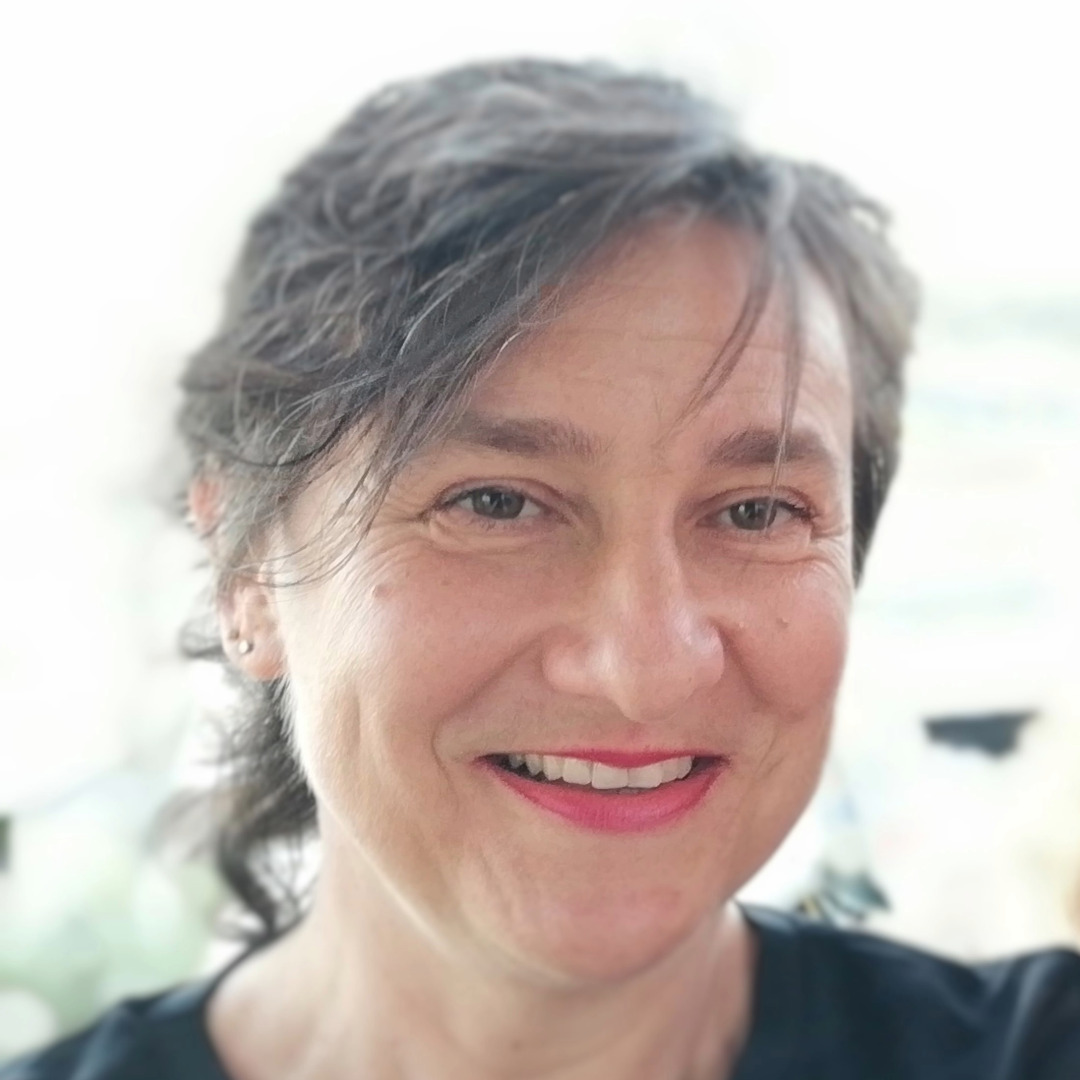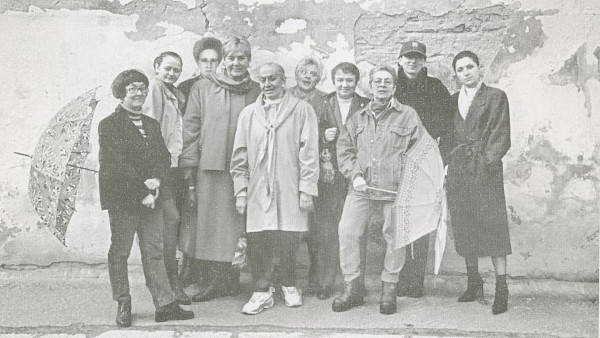
A roundtable discussion with friends, colleagues, and festival visitors from Studio Tatyana / IWFF and representatives of the Belarusian film and cultural scene in exile. Together we remember the film workers in and around the Minsk studio. Describing itself as a choir, it was the only independent “women’s film and video studio” in the former USSR. Studio Tatyana carried out a wide range of film production and outreach work. Its most important pillar was the International Women’s Film Festival Minsk.
The studio's research-intensive film work is now a unique source of the unofficial historiography of that European nation, which reverted to dictatorship shortly after gaining independence. The studio engaged in political resistance, opposing all the things that are shockingly acceptable today: patriarchal-reactionary thinking, abuse of power, violence, repression.
With Igor Soukmanov (film critic and curator, Berlin), Ludmila Pogodina (author and multidisciplinary artist, Berlin), Claudia von Alemann (filmmaker, Cologne) and Veronika Minder (filmmaker, Bern). Moderated by Gaby Babić and Barbara Wurm.
The discussion is a continuation of two events relating to Studio Tatyana that took place in October 2024 at Forum & Friends at the Arsenal cinema in Berlin.
In cooperation with goEast – Festival of Central and Eastern European Film and the Heinrich-Böll-Stiftung Hessen
Free entry.
Igor Soukmanov is a film expert, publicist, festival organiser and journalist; a member of the European Film Academy and FIPRESCI, as well as a founding member of the Belarusian Independent Film Academy. In 1993, while a student at VGIK, he volunteered in organising the 2nd International Women's Film Festival curated by Studio "Tatiana". For eleven years (2010–2020), he served as Program Director of the Listapad International Film Festival in Minsk. Since 2022, he has been an Advisory Board Member of Programming at the Odesa International Film Festival. He currently serves on the selection committee of the goEast Film Festival in Wiesbaden.
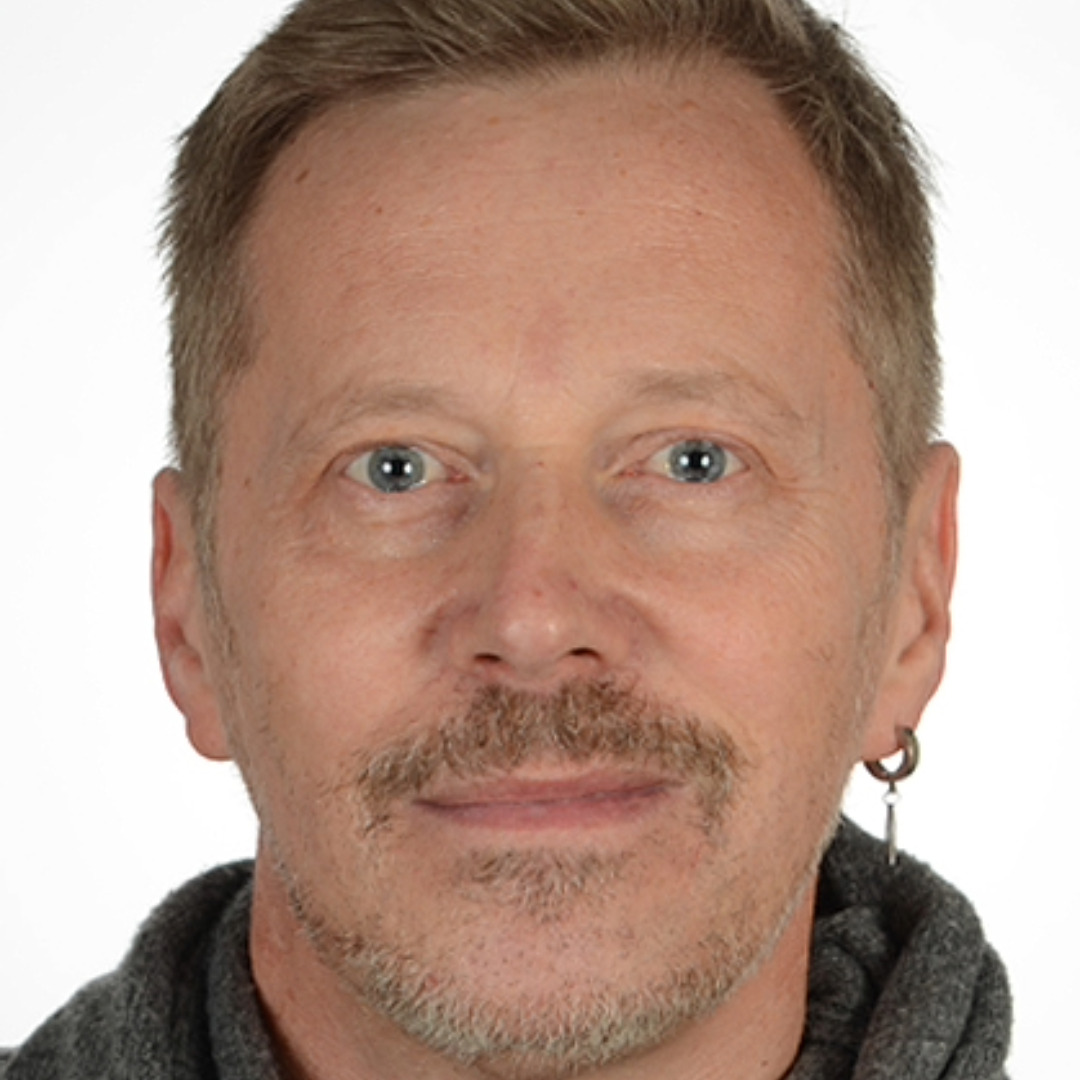
Ludmila Pogodina is a writer, multidisciplinary artist and curator from Belarus. After a successful career in independent journalism, Pogodina co-founded a feminist and queer-friendly art collective in Minsk, organizing dozens of events at the intersection of music, visual art, and performance together with her team. In 2022, Pogodina moved to Berlin, where she works for the Interfilm film festival, and curates the feature film competition at the Neisse film festival. The focus of Pogodina’s personal artistic practice is her ability to apply her storytelling skills not only in literature, but also in her work with images and sound. She strives to tell deeply personal stories, using vivid metaphors and attention to small details, thereby creating a contrast between fantasy and the global socio-political context.
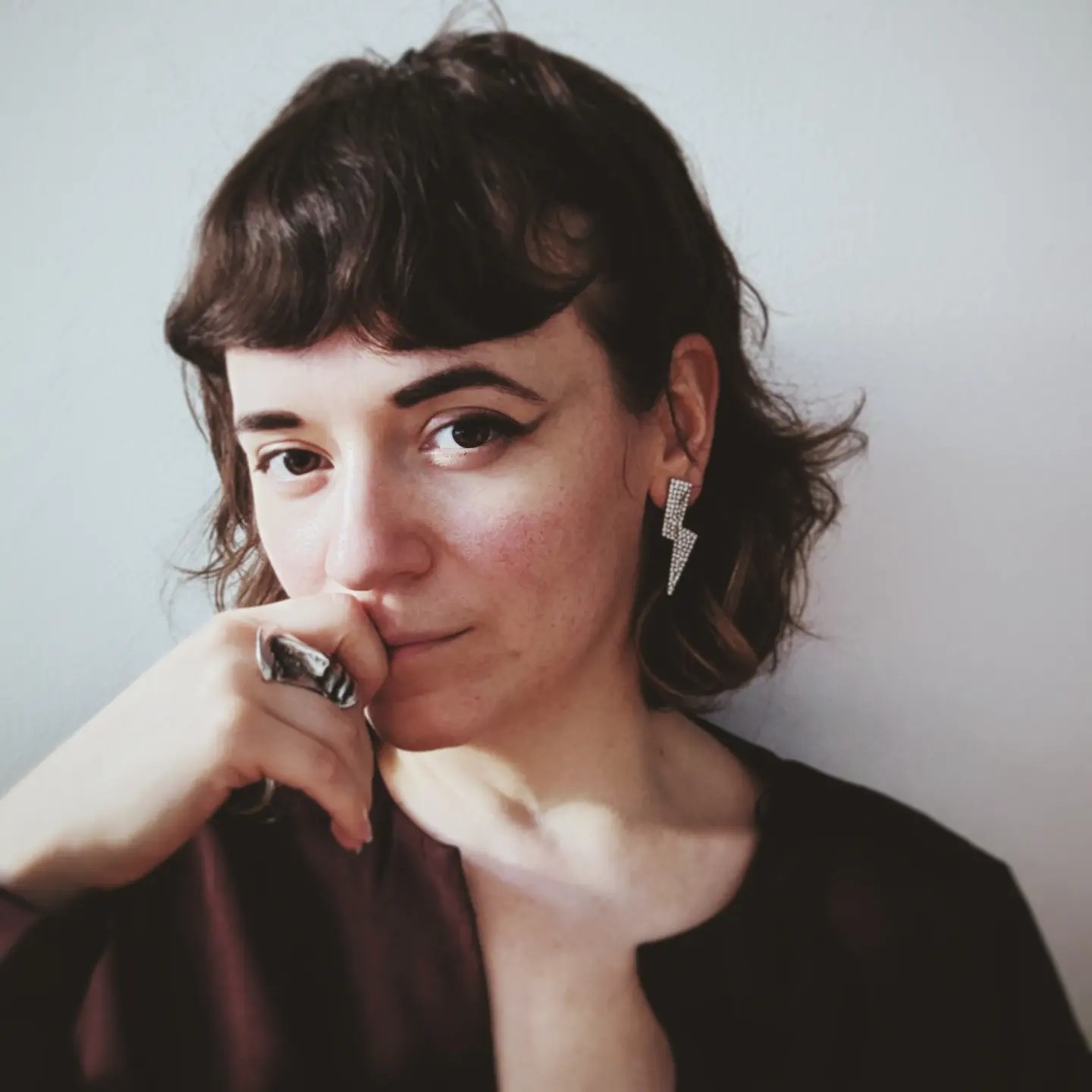
Film director of documentary and feature films, author and independent producer, is one of the most prominent figures of feminist filmmaking. In 1973, she organised and curated the First International Women’s Film Seminar at Kino Arsenal together with film director Helke Sander. A former professor at the University of Applied Sciences Dortmund, her oeuvre encompasses experimental and documentary work as well as feature films. In complex filmic collages that juxtapose music, sound, visual art and photography, she illuminates historiography’s blind spots.
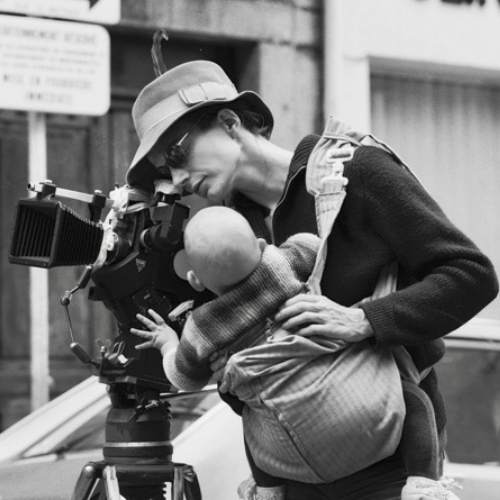
As a young woman – rooted in Bern’s subculture – Veronika Minder (*1948) organised concerts, fashion shows and multimedia events. From 1988 onwards, she shaped the local film scene for twelve years as the director of the Kellerkino, initiating numerous film series and festivals. Between 2001 and 2004, she worked as a freelance cultural mediator for museums, theatre productions and music organisers, and began her research on the history of lesbians in Switzerland. Her documentary Katzenball was screened successfully around the globe from 2005 onwards and received numerous awards (including the Teddy Award at the Berlin Film Festival and the Zurich and Bern Film Awards in 2005). Between 2007 and 2020, she continued to present culture from the “other” side – with projects such as Transformer in Biel, Sexarbeit, and Bob Le Flâneur at the Kornhaus in Bern. Now retired, she remains actively engaged in queer culture, reads a large number of books, and goes to exhibitions, concerts and the cinema.
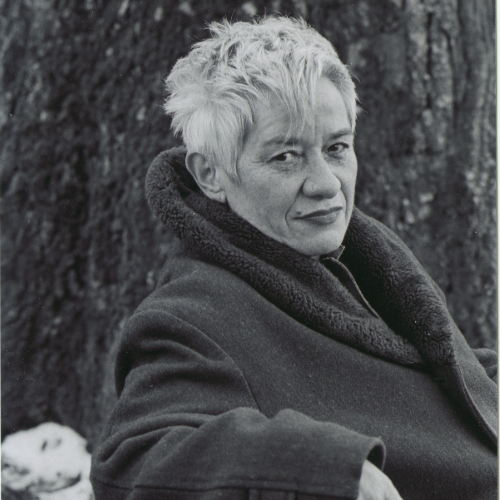
Barbara Wurm has led the Forum section since August 2023. She served on the Berlin International Film Festival selection committee (2020–23), the goEast Festival committee (2012–23), and worked for nearly 20 years at DOK Leipzig. She was also part of the Oberhausen Short Film Festival committee for a year. Wurm has curated programmes for festivals and archives in cities including Vienna, London, Berlin, Rotterdam, and Kyiv, and has served on juries at major festivals such as Venice (2022) and Karlovy Vary (2023). Her curatorial work includes, among others, the program “Feminist Against Their Will: Women Filmmakers from Central and Eastern Europe” (together with Borjana Gaković and Christine Gölz, goEast 2017) as well as her role as co-curator of “Forum & Friends III – Studio Tatyana” (2024). Her publications include, among others, Short Encounters. Kira Muratova’s Korotkie vstreči, in: Frauen und Film, no. 68, 2016 (Awakening: Women Directors of the 1960s), pp. 143–166. Further publications can be found here.
